Winton Centre for Risk and Evidence Communication
What has been happening to attitudes to government, science and COVID-19 in the UK during the pandemic?
In March 2020, just before lockdown started in the UK, we conducted our first online survey, asking people their feelings and opinions on a broad range of COVID-related issues. We did this first survey with 700 participants the online survey company Prolific. Since then, we've been repeating many of the same survey questions with different participants with both Prolific and an alternative company, Respondi (700-2000 participants recruited via each company). We set quotas to ensure that we ask a group of people who are representative of the UK population as a whole in terms of age and gender, but we know that the Prolific and Respondi participants differ in many ways. Having participants from both companies adds diversity to our samples.
On this page, we show some of the trends we've seen in opinions over the months.
Firstly, how people have been affected by COVID-19 - financially, socially, and in terms of mental health. Here we can see the steady increase in the numbers of people who have known others affected by the virus. Financial difficulties have remained somewhat constant after the initial increase in problems caused by the onset of the pandemic and lockdown in mid-March. Reported mental health difficulties have increased more recently, in our September 2020 survey. Reported social difficulties show an increase with the first UK-wide lockdown and then signs of second increase as more rules started in the autumn.
(Graphs show mean participant responses on a 7-point scale labelled as shown on the y-axis)
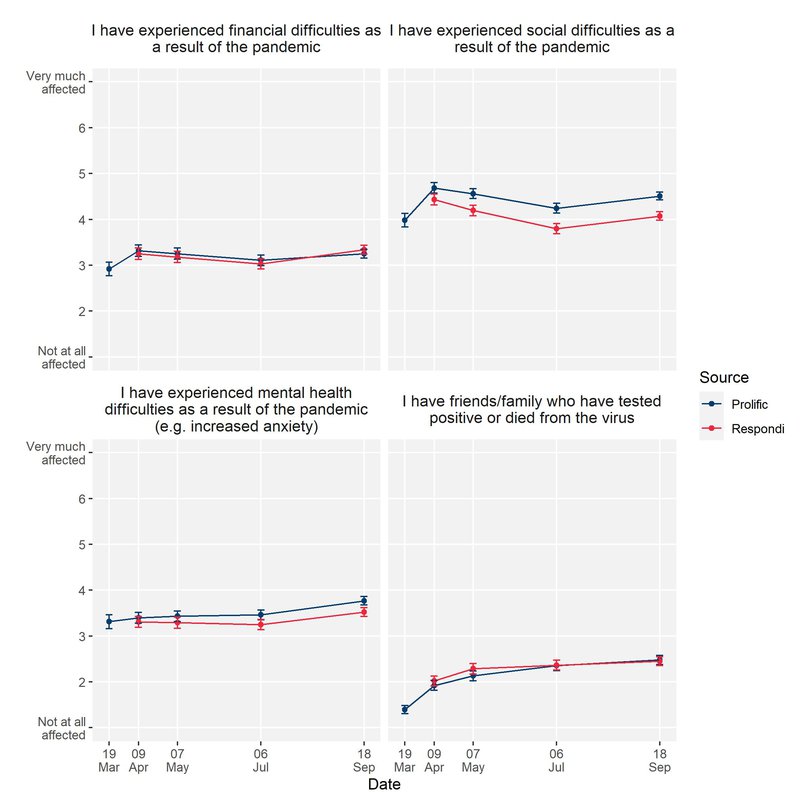
Worry about the coronavirus peaked in the UK in late March/early April as the first wave and lockdown hit. It then decreased over the summer and has remained relatively constant since:
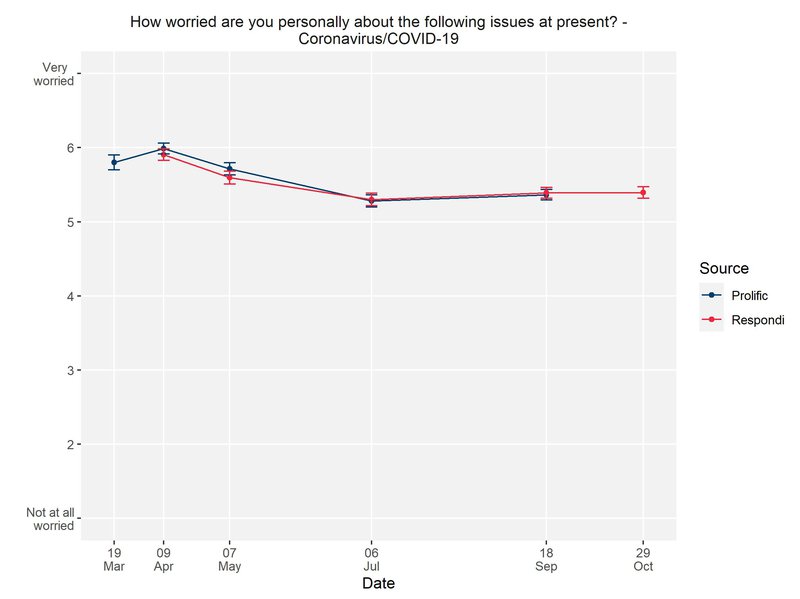
Interestingly, this doesn't quite mirror the feelings people have about the likelihood of becoming infected with the virus, which instead matches better the two waves of infection that the UK has suffered (although the March rating of high probability of infection is anomalous and probably represents the fear as the first wave approached).
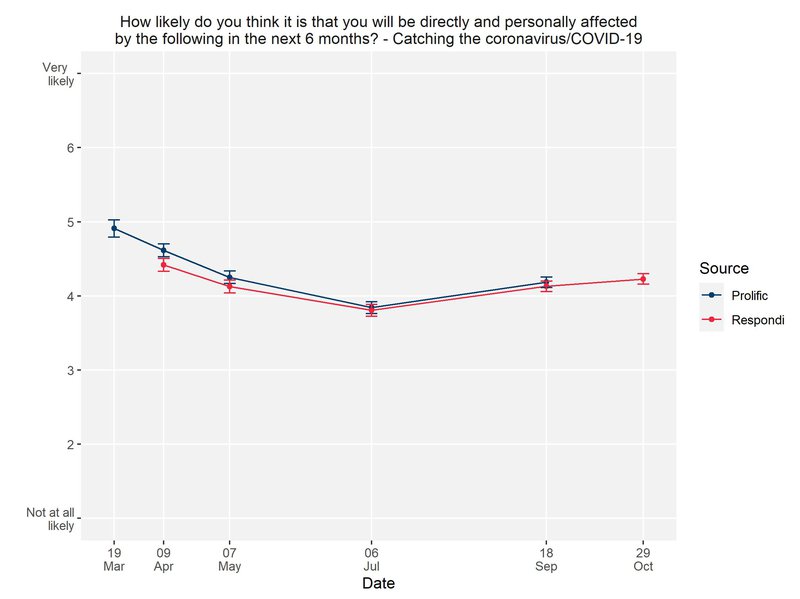
Feelings of prosociality - helping others at cost to oneself - is a really interesting measure that we saw peak at the start of lockdown in the UK (and other countries). Many people volunteered to help neighbours and wanted to help the collective effort against the virus. This dropped back down to its original levels relatively quickly, but our late October survey, as lockdown was about to start again in England and already had in Wales, shows another slight uptick.
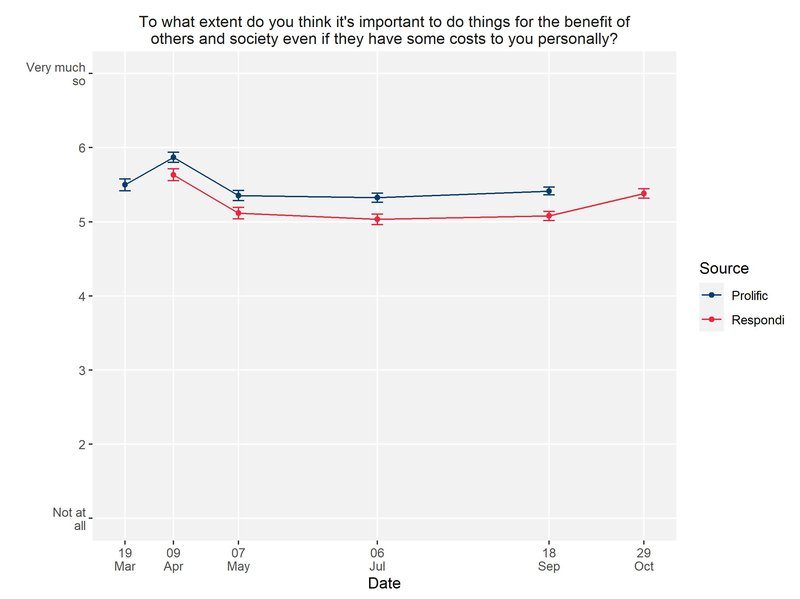
We also looked at levels of trust - a key part of communications networks. Firstly, general, non-COVID-specific trust: we see trust in science and science professionals remain steady over the pandemic, whilst we see a decline in trust in policy professionals.
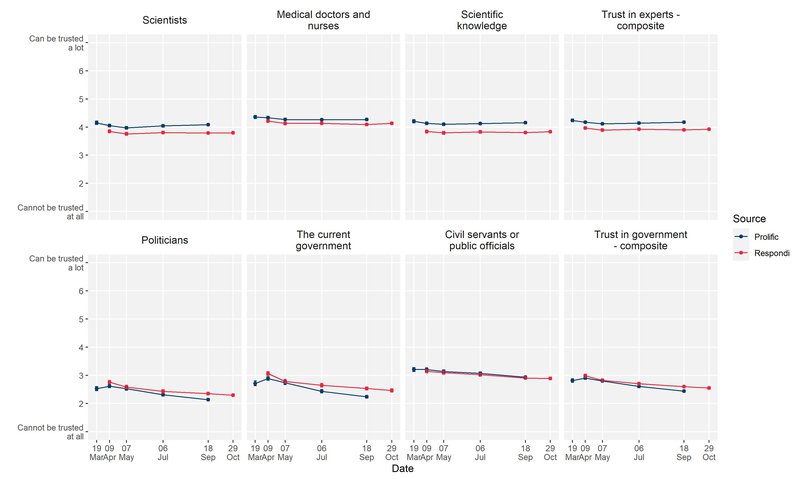
When it comes specifically to dealing with the pandemic, though, we see some pretty big declines in trust in politicians:
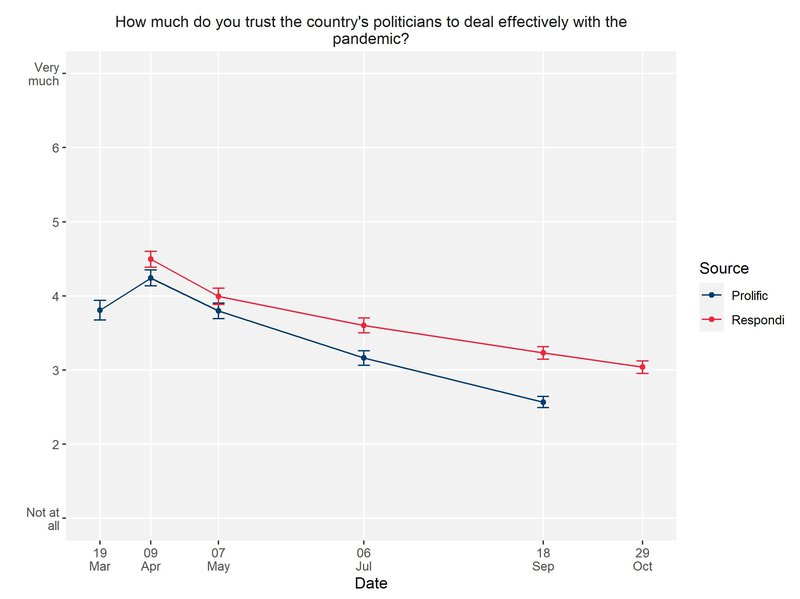
Lack of understanding of government strategy:
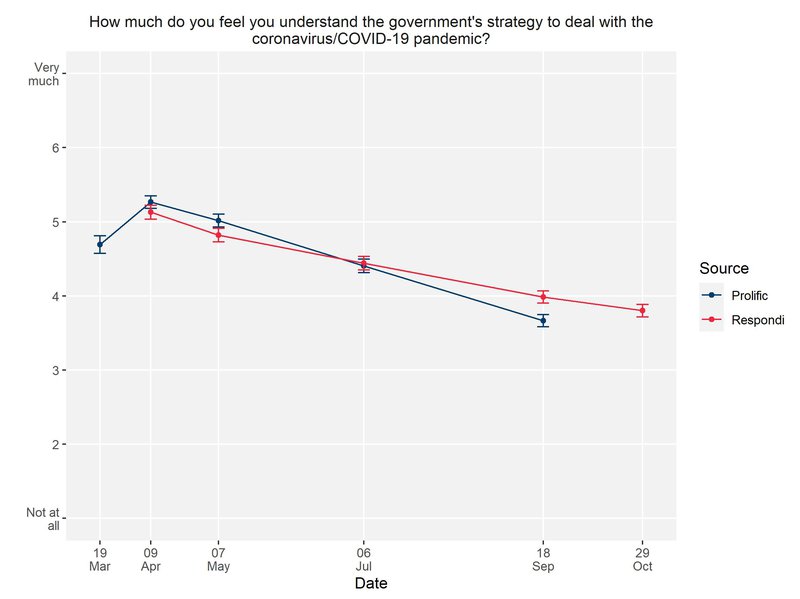
And feeling that people have enough information to help deal with the pandemic:
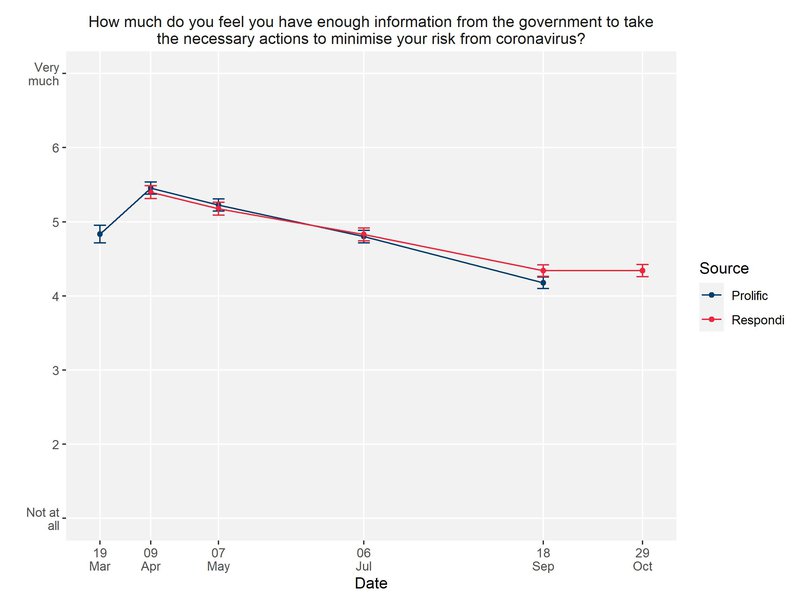
Whilst trust in science professionals in dealing with the pandemic has been more steady:
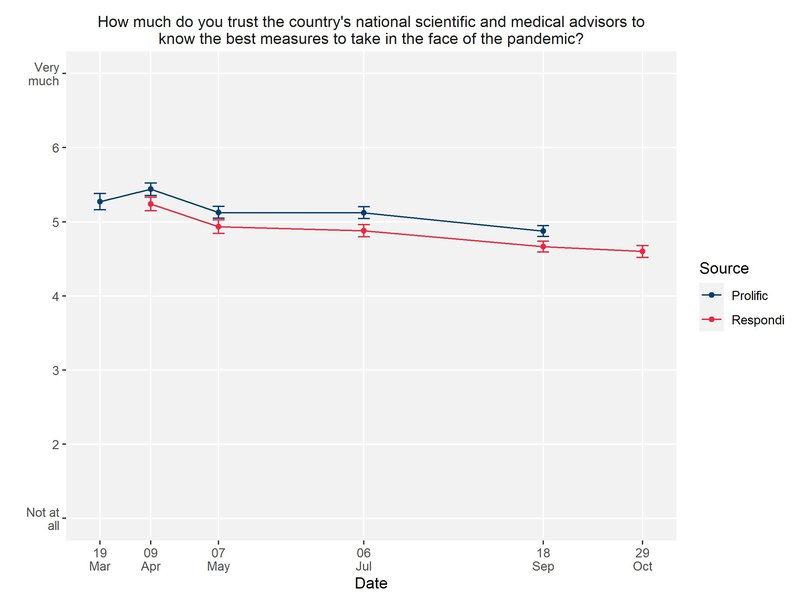
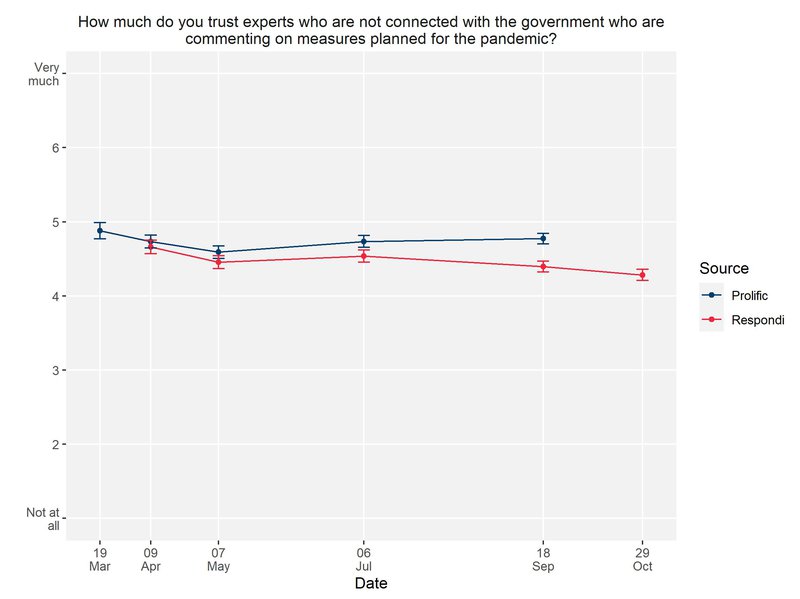
Feelings about scientists' knowledge of the coronavirus, however, has not increased over the pandemic period:
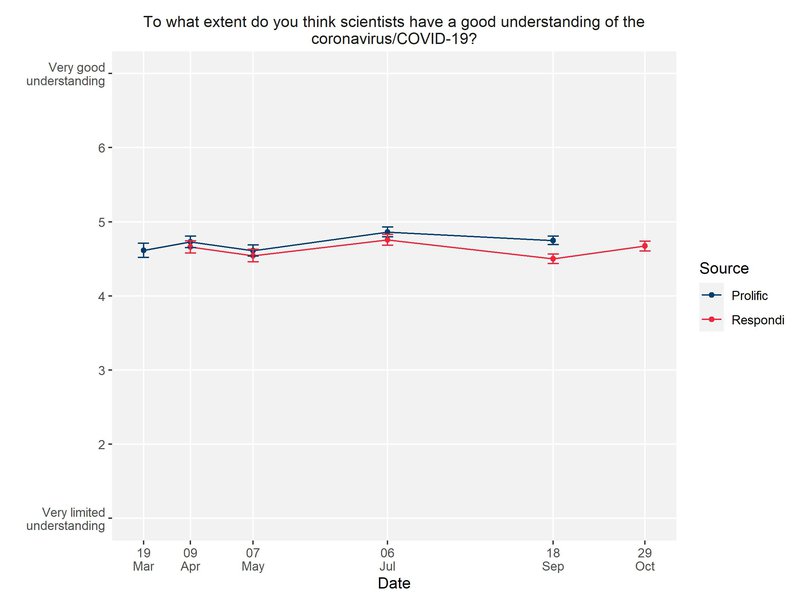
Overall, then, scientists can perhaps be reassured that they're not losing public trust - though they're not increasing it either with their response to the pandemic. UK politicians and the government, though, are not overall being seen to deal with the crisis well (we have not yet looked at whether responses differ in the different nations of the UK). Particularly there is a lack of perceived strategy and people do not feel that they have as much helpful information as they did at the start of lockdown, when measures involving the government, and prosocial sentiment, all received a positive bump.